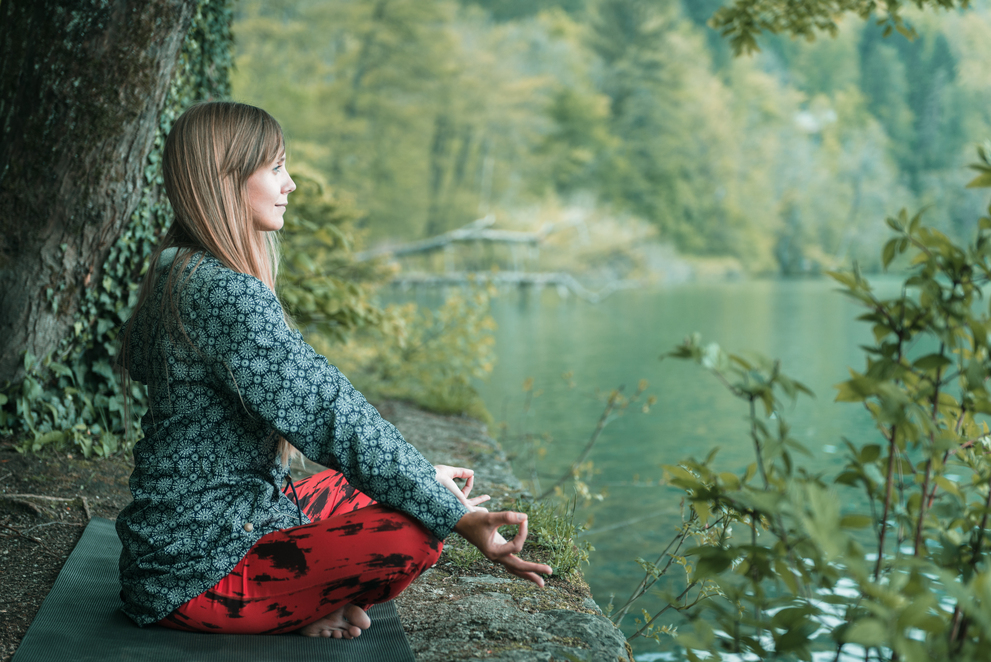In today’s fast-paced and demanding world, anxiety has become a common experience for many individuals. While it is normal to feel anxious from time to time, excessive and prolonged anxiety can significantly impact our well-being. Fortunately, there are various strategies and techniques available to help reduce anxiety and restore a sense of inner calm. In this article, we will explore the top ways to reduce anxiety and provide practical tips to help you navigate life’s challenges with greater ease and serenity.
Practice Deep Breathing and Mindfulness:
Deep breathing exercises and mindfulness techniques are powerful tools for calming the mind and body. When anxiety arises, focus on taking slow, deep breaths, inhaling deeply through your nose and exhaling fully through your mouth. This simple practice activates the body’s relaxation response, reducing anxiety and promoting a sense of tranquility. Pair deep breathing with mindfulness, by bringing your attention to the present moment and observing your thoughts and feelings without judgment. This practice helps to detach from anxious thoughts and cultivates a sense of inner peace.
Engage in Regular Physical Exercise:
Physical exercise is not only beneficial for our physical health but also plays a crucial role in reducing anxiety. Engaging in regular exercise releases endorphins, our brain’s “feel-good” chemicals, which promote a sense of well-being and happiness. Choose activities that you enjoy, such as walking, jogging, yoga, or dancing, and make them a part of your daily routine. Not only will exercise help alleviate anxiety, but it will also improve your overall mood and increase your energy levels.
Prioritize Self-Care:
Self-care is essential for managing anxiety and promoting overall mental well-being. Take time each day to engage in activities that nourish your mind, body, and soul. This can include practicing relaxation techniques, taking warm baths, reading a book, spending time in nature, or engaging in hobbies that bring you joy. Prioritizing self-care sends a powerful message that your well-being matters, helping to reduce stress and anxiety in the process.
Establish a Regular Sleep Routine:
Adequate sleep is vital for emotional regulation and anxiety reduction. Establishing a consistent sleep routine can significantly improve your overall well-being. Aim for seven to eight hours of quality sleep each night and create a relaxing bedtime routine to signal to your body that it’s time to unwind. Avoid electronic devices before bed and create a calming environment in your bedroom, free from distractions. Prioritizing sleep will help you wake up feeling refreshed and better equipped to manage anxiety throughout the day.
Cultivate a Supportive Social Network:
Building and maintaining strong social connections can be immensely beneficial in reducing anxiety. Surround yourself with supportive and understanding individuals who can provide comfort, encouragement, and a listening ear when needed. Whether it’s close friends, family members, or joining support groups, having a network of people you trust can help alleviate feelings of loneliness and anxiety. Reach out to your loved ones and foster meaningful connections that nourish your mental well-being.
Practice Cognitive-Behavioral Techniques:
Cognitive-Behavioral Therapy (CBT) techniques can be highly effective in managing anxiety. CBT focuses on identifying and challenging negative thought patterns and replacing them with more positive and realistic ones. Start by paying attention to your thoughts and questioning their validity. Are they based on evidence or distorted perceptions? Once identified, reframe negative thoughts into more balanced and helpful ones. With practice, you can change your thinking patterns, leading to a reduction in anxiety and an increased sense of control.
Limit Exposure to Stress Triggers:
Identify the sources of stress and anxiety in your life and take proactive steps to limit your exposure to them. This may involve setting boundaries, learning to say no, or reevaluating commitments that are causing undue stress. Additionally, be mindful of your media consumption and the impact it has on your anxiety levels. Limit exposure to news or social media content that triggers anxiety and consider taking regular breaks from digital devices to promote a sense of calm.
Incorporate Relaxation Techniques:
Incorporating relaxation techniques into your daily routine can significantly reduce anxiety. Explore practices such as progressive muscle relaxation, guided imagery, or aromatherapy. Find what works best for you and make it a regular part of your self-care routine. Engaging in relaxation techniques helps activate the body’s relaxation response, lowers stress hormones, and promotes a state of calmness.
Seek Professional Help:
If anxiety persists and significantly interferes with your daily life, seeking professional help is crucial. A mental health professional can provide valuable guidance, support, and evidence-based treatments tailored to your specific needs. They may recommend therapy, medication, or a combination of both, depending on the severity of your anxiety. Remember, reaching out for help is a sign of strength and a vital step towards finding relief.
Practice Gratitude and Positive Thinking:
Cultivating a mindset of gratitude and positive thinking can have a profound impact on reducing anxiety. Make it a habit to focus on the positive aspects of your life, even in challenging times. Keep a gratitude journal and write down three things you are grateful for each day. This practice shifts your focus from worries and anxieties to the abundance and positivity that surrounds you, promoting a more optimistic outlook.
Conclusion:
Reducing anxiety requires a multi-faceted approach that encompasses various strategies, lifestyle changes, and self-care practices. By incorporating deep breathing, mindfulness, exercise, self-care, and positive thinking into your daily routine, you can cultivate a sense of inner calm and resilience. Remember, it’s essential to find what works best for you and be patient with yourself throughout the process. With time and consistent effort, you can effectively manage anxiety and lead a more balanced and fulfilling life.
